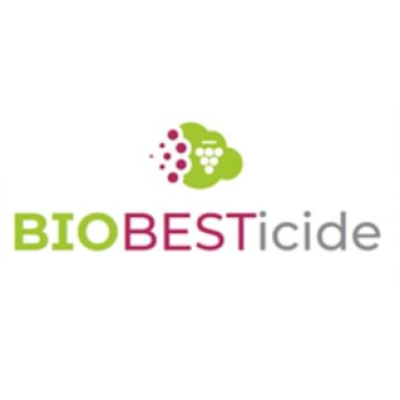‘When applied to vineyards, Pythium oligandrum plays a pivotal role in biocontrol. The fungus colonises the grapevine's wood, forming a protective barrier against potential pathogens through the induction of disease resistance by elicitors such as oligandrin. Additionally, it secretes enzymes that break down the cell walls of pathogenic organisms, hindering their growth and spread. This process effectively curtails the development of GTDs and promotes healthier vine growth,’ said project coordinator Ahmed Taïbi from lead partner Greencell.
The fungus forms a protective barrier against pathogens and secretes enzymes that break down the cell walls of pathogenic organisms.
Ahmed Taïbi, BIOBESTicide project coordinator
Applied at optimal times and concentrations, the fungus provides at least 60% protection against GTDs. In addition, compared with chemical inputs, it can increase crop yield by more than 10%.
Successful vineyard trials
The main production tools designed under the project were a tray fermenter and harvesting equipment for producing and harvesting Pythium oligandrum spores. The technology was installed in the BIOBESTicide demonstration plant at Saint-Étienne-de-Chomeil, France, which has a clean room and a sterile chamber and can produce over 10 tonnes of bio-based pesticide a year.
‘To use Pythium oligandrum as an effective biocontrol agent on a commercial scale, it is crucial to develop efficient spore production techniques,’ explains Ahmed Taibi. ‘By optimising the fermentation process, substantial spore volumes can be generated, ensuring a steady supply for vineyard applications.’
The pesticides were tested in greenhouses and vineyards in different areas, including the Loire Valley, Bordeaux and Côtes du Rhône wine regions in France. For example, greenhouse trials showed reduced necrosis – the death of plant tissue – by around 70%. The products were monitored to check for health and environmental risks, and an application was submitted to obtain EU-level authorisation for using the fungus in bio-based pesticides.
Renewable resources bring additional environmental benefits
Molasse is an ideal substance for cultivating fungus, as it is high in carbon and other essential elements for fungus growth. Carbon makes the fungus grow quickly, making it readily available for large-scale applications. By transforming agricultural waste into a valuable raw material, the project promotes resource efficiency and the European bioeconomy.
By adopting this eco-friendly approach, vineyards can manage grapevine trunk diseases effectively, ensuring healthier vines, increased grape yields and a greener future for the wine industry.
Ahmed Taïbi, BIOBESTicide project coordinator
Replacing chemical inputs with bio-based alternatives will also minimise harmful environmental impacts by preventing soil and water contamination. Reducing exposure to chemicals benefits everyone, especially farmers, rural workers, and their families. Moreover, it preserves the ecological balance of vineyards by protecting the plant and animal habitats that depend on them.
New value chains
The project’s development of new value chains and cooperation between companies in various sectors will create bio-based jobs, particularly in rural wine-producing areas. It will also safeguard the livelihoods of farmers, vineyard workers and staff of associated businesses such as wineries, wine distributors and tourist establishments.
As well as strengthening Europe’s bio-based pesticide market, BIOBESTicide will help European vineyards comply with evolving regulations and consumer demand for environmentally friendly practices, enhancing their reputation and creating a competitive advantage.
Over 100 potential end users, including farmers, vineyard owners, and winemakers, have been identified as potential commercial users of the sustainable bio-based pesticide. The partners also highlight the effectiveness and sustainability of the products and value chains to agricultural product distributors, companies harvesting, storing, and transporting biomass, policymakers, and researchers.
By promoting the uptake of bio-based pesticides, CBE JU funding is helping to transform European viticulture. ‘Through this cutting-edge initiative, Greencell aims to revolutionise vineyard management, offering eco-friendly solutions for the viticulture industry. By adopting this eco-friendly approach, vineyards can manage GTDs effectively, ensuring healthier vines, increased grape yields and a greener future for the wine industry,' concludes Taïbi.

